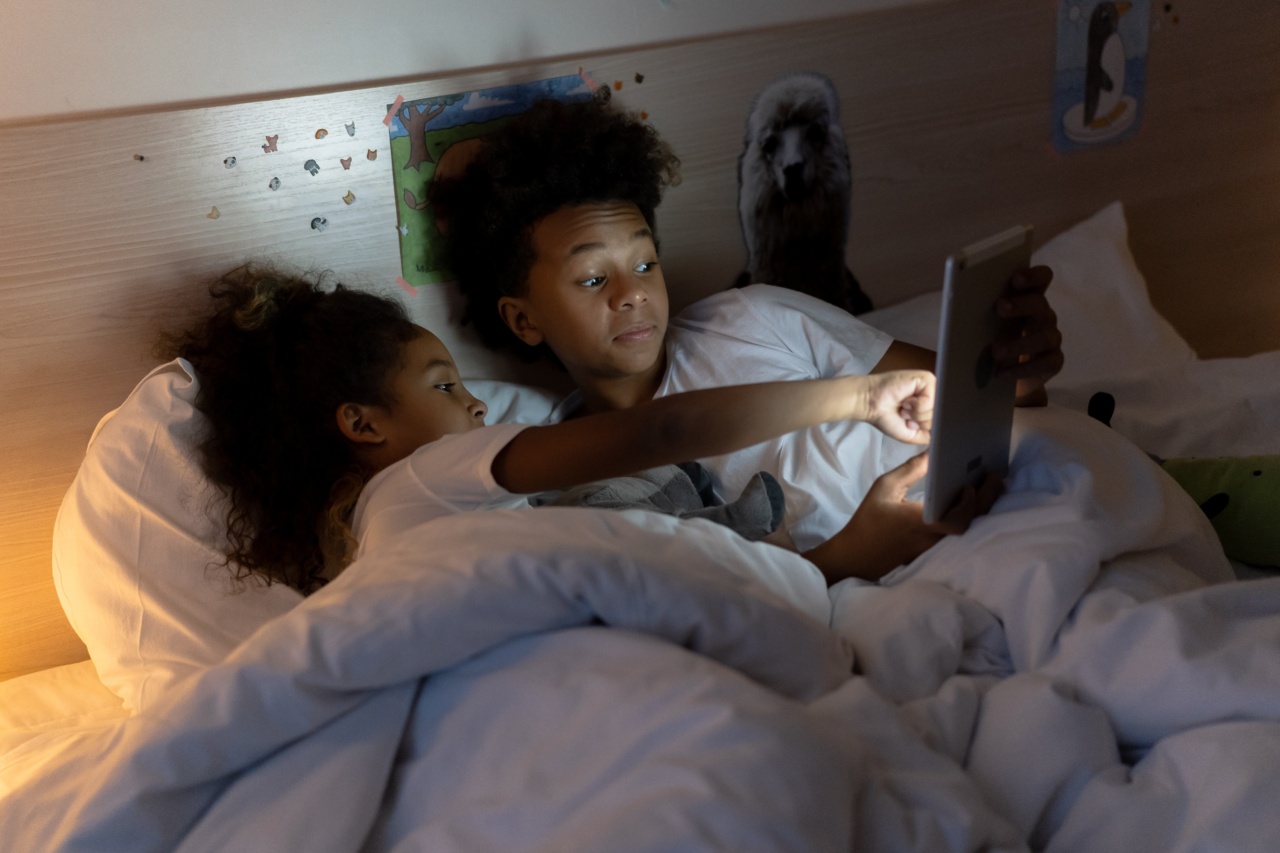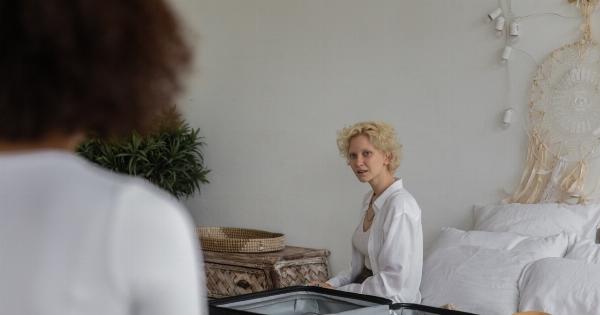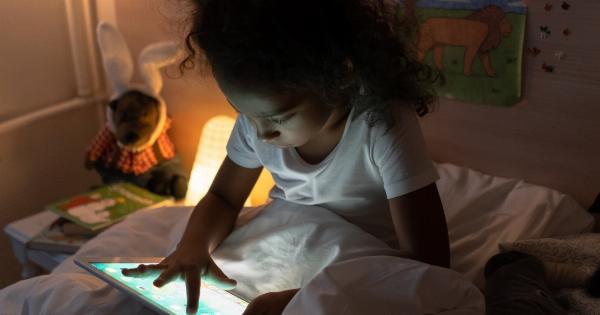In today’s modern society, people rely heavily on technology to manage their daily lives. One of the most popular gadgets is the tablet.
Tablets are portable, with a long battery life, and offer a variety of features such as reading books, streaming videos, and browsing the web. However, the blue light emitted by tablets can lead to sleep deprivation and insomnia. While using a tablet during the day does not cause any harm, using it at night has a major effect on our sleep cycle.
Blue Light and Sleep Cycle
Darkness triggers the production of melatonin, a hormone that regulates sleep-wake cycles. Exposure to light, particularly blue light, suppresses melatonin production, making it challenging to fall asleep and stay asleep.
Blue light has a shorter wavelength and a higher energy than other colors, making it more effective in stimulating the brain’s photoreceptors and inhibiting the production of melatonin, making you more alert.
Our body’s internal clock, also known as the circadian rhythm, controls our sleep-wake cycle and regulates physiological processes such as hormone production, metabolism, and blood pressure.
Blue light exposure at night disrupts the circadian rhythm, making it harder to fall asleep and stay asleep. According to a study by the National Sleep Foundation, exposure to blue light before bedtime delays the onset of melatonin by over an hour.
The Impact of Blue Light on Your Health
Blue light exposure at night not only affects our sleep-wake cycle but also affects our health in various other ways:.
1. Increased Risk of Chronic Diseases
Studies have linked blue light exposure at night to an increased risk of chronic diseases such as obesity, diabetes, and cardiovascular disease.
According to a study published in the Journal of Biological Rhythms, exposing animals to constant blue light caused weight gain and metabolic problems compared to animals exposed to darkness or dim light at night.
2. Eye Damage
Blue light exposure can cause damage to the eyes, leading to digital eye strains, eye fatigue, and dry eyes. The American Academy of Ophthalmology warns that using digital devices before bedtime can cause eye strain and disrupt the sleep cycle.
3. Increased Stress and Anxiety
Blue light exposure at night disrupts the circadian rhythm, leading to an increase in stress and anxiety.
According to a study conducted by the University of Haifa, blue light exposure at night led to increased cortisol levels, the hormone associated with stress. In another study conducted by the University of Basel, participants exposed to blue light before bedtime reported increased anxiety levels compared to participants exposed to dim light.
Tips to Reduce Blue Light Exposure at Night
Limiting blue light exposure at night can improve your sleep and overall health. Here are some tips to reduce blue light exposure:.
1. Use Night Mode or Blue Light Filtering Apps
Most tablets and smartphones have built-in night mode features that reduce blue light emissions. The night mode feature changes the display color temperature from blue to yellow, reducing blue light exposure.
Alternatively, you can use blue light filtering apps that adjust the color temperature of the display to reduce blue light exposure.
2. Use a Blue Light Filter Screen Protector
Blue light filter screen protectors are also available for tablets and smartphones. These protectors block blue light emissions, reducing blue light exposure and improving sleep quality.
3. Use Low Brightness Settings
Using low brightness settings reduces the intensity of blue light emissions from the tablet, making it less harmful to your sleep cycle.
4. Avoid Using Tablets Before Bedtime
Avoid using tablets or any screens at least an hour before bedtime. Engage in activities that help you relax, such as reading a book, taking a warm bath, or listening to calming music.
Conclusion
Tablets and other digital devices have become an integral part of our daily lives, but using them at night can have a significant effect on our sleep quality.
Blue light exposure before bedtime suppresses the production of melatonin, affecting the circadian rhythm, which regulates our sleep-wake cycle. This, in turn, affects our overall health and increases the risk of chronic diseases, eye damage, stress, and anxiety. By adopting simple measures to limit blue light exposure at night, we can improve our sleep quality and overall health.






























